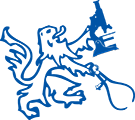The Research Instrumentation Core created and teaches two DMS Nanocourses that are each offered (roughly) annually.
Arduino for Biologists
This nanocourse covers the basics of programming an Arduino microcontroller and interfacing with sensors and actuators in order to build simple lab instruments. These microcontroller-based tools can help researchers quickly automate and scale up aspects of their research. During the video lectures, we will explain how a microcontroller works and cover basic topics in electronics and programming. Each student will be provided with a kit of parts and self-paced exercises to design, build, and debug small projects of their own. (Arduino Nanocourse Website)
Electronics and Signal Processing for Experimental Rigs
The goal of this course is to demystify the rig: What does each instrument do? How should they be connected? How does one troubleshoot noise, or adjust settings in a principled way? It focuses on fundamental concepts in electronics and signal processing, covering both theory and practice. Topics will include: signal impedance, capacitance, amplifiers and opAmp circuits, mitigating noise, digitization, sampling rates, and aliasing. These topics should be broadly applicable to experimental biologists who use a rig to generate or record small, precise signals in the presence of noise. We will rely on hands-on assignments to reinforce the lecture content and build intuitive understanding. (Rig Nanocourse Website)

